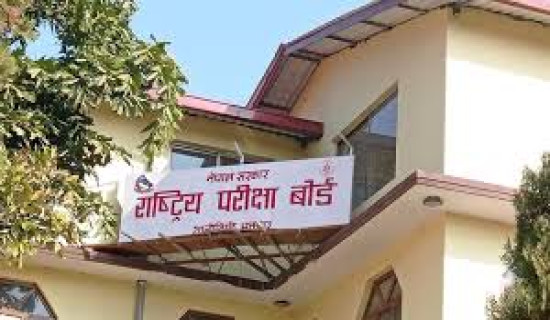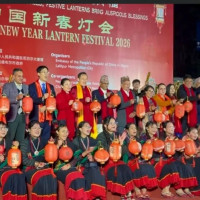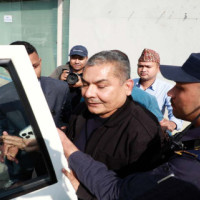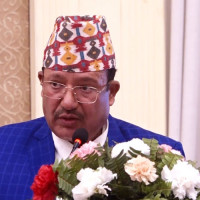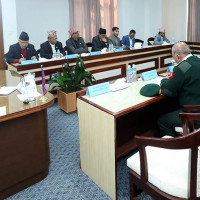- Wednesday, 18 February 2026
19 Years Of CPA
Justice Eludes Conflict Victims
The Comprehensive Peace Accord (CPA), signed on 21 November 2006, which ended the decade-long armed conflict in Nepal, reads “Both sides agree to make public within 60 days of signing of the agreement information about the real name, caste, and address of the people 'disappeared' or killed during war and to inform the family about it.” But 19 years later, the family members of the disappeared are still waiting to know the whereabouts of their family ones.
In some enforced disappearance cases, international bodies, such as the United Nations Human Rights Committee, have even asked Nepal to investigate into enforced disappearance cases, provide the family of the enforced disappearance with adequate information about the whereabouts of their loved ones, and also provide them with adequate compensation and reparation. As per the report of the International Committee of the Red Cross, 2018, there are 1333 enforced disappearance victims during the conflict.
Symbolic funeral
Whether it be Chandrakala Upreti from Banke who, after waiting for 21 years for her husband, received no information from the state, performed a symbolic funeral for her husband using a figure made of Kusha (spiritual grass), or it be Ram Bhandari who is still waiting to receive information about his father’s enforced disappearance, the situation of enforced disappeared victims has not improved. The amendment bill of the Truth and Reconciliation Commission (TRC) Act was passed; however, the act itself has provisions that are not victim-friendly. Though the act recognised enforced disappearances as gross violations of human rights, the condition for such recognition is that the victims’ whereabouts must still be unknown.
Therefore, cases where the remains have been found might be excluded from the definition of enforced disappearances, which might lead to a denial of justice to such enforced disappearance victims. Similarly, the provision allowing the Attorney General to request a 75 per cent reduction in sentencing (except for rape and serious sexual violence) raises concerns that perpetrators of enforced disappearances could receive significantly reduced punishments, undermining justice for victims. Not only this, despite the need for sensitivity in the matters of transitional justice and grave concerns expressed by human rights organisations and conflict victims regarding the selection process, victims point out that there have been political appointments in the commissions.
As soon as the commissioners took the oath, the very next day, without considering the sensitivity of the matter, the commissions issued separate notices calling for applications from the victims, with a three-month limitation. Such political meddling and procedural errors continue to delay the investigation and prosecution of the enforced disappearance cases. A total of 334 conflict victims from Nepal have even filed public interest litigation at the Supreme Court of Nepal, calling for revocations of the appointments in the commissions and amendment of the transitional justice act.
The difficulties faced by victims of enforced disappearance and their families are many. Due to the state of not knowing about their loved ones’ whereabouts, the families live in uncertainty about whether their loved one is alive or dead. As they got no closure, many of them are still waiting with the hope that their loved ones will come back. This causes psychological stress and trauma in them.
Many families face financial difficulties, as many of the disappeared were breadwinners of the family, and their disappearance led to a loss of income. Additionally, the struggle of the wives of the disappeared for the process of property transfer and citizenship for children and other benefits is also frustrating. Sometimes this makes them pressured to prove that the disappeared ones are dead. Additionally, they also face social stigma and are labelled “abandoned”. Society members, at times, assumed that the disappeared ones were politically involved or were criminals, making it difficult for the families.
The one-time interim relief that the victims received was not able to recognise the full harm and provide them with long-term support. Comprehensive reparation schemes, including education, livelihood, housing, and other benefits for them, are not there. Hence, not providing the disclosure of the fate and whereabouts of the enforced disappeared persons, no recognition of wrongdoings, and lack of reparative measures make the families feel ignored and invisible, which leads to issues of depression, anxiety, and PTSD.
Continuing crime
Nepal is yet to ratify the International Convention for the Protection of All Persons from Enforced Disappearance (ICPPED). As per international law, disappearance is a continuing crime; it is not a completed crime. ICPPED allows the statute of limitations to consider “the continuous nature” of the crime. One of the major reasons behind Nepal’s non-ratification might be that ratification would bring the obligation to investigate the disappearances during the conflict period, which might create difficulty for those in power. It seems Nepal has not prioritised the enforced disappearance cases, which is the reason for the non-ratification.
The Nepal government should ratify the ICPPED convention, criminalise enforced disappearance in such a way that covers past “continuing crimes”, appoint commissioners in the commissions with proper victims' consultation and participation, investigate the past enforced disappearance cases, prosecute and sanction the perpetrators, provide information to the family members, provide adequate compensation and reparations, and strengthen victims’ rights to truth, justice, and reparations.
(Adhikari is pursuing her Master's in Conflict, Peace and Development Studies at Tribhuvan University, Nepal.)



